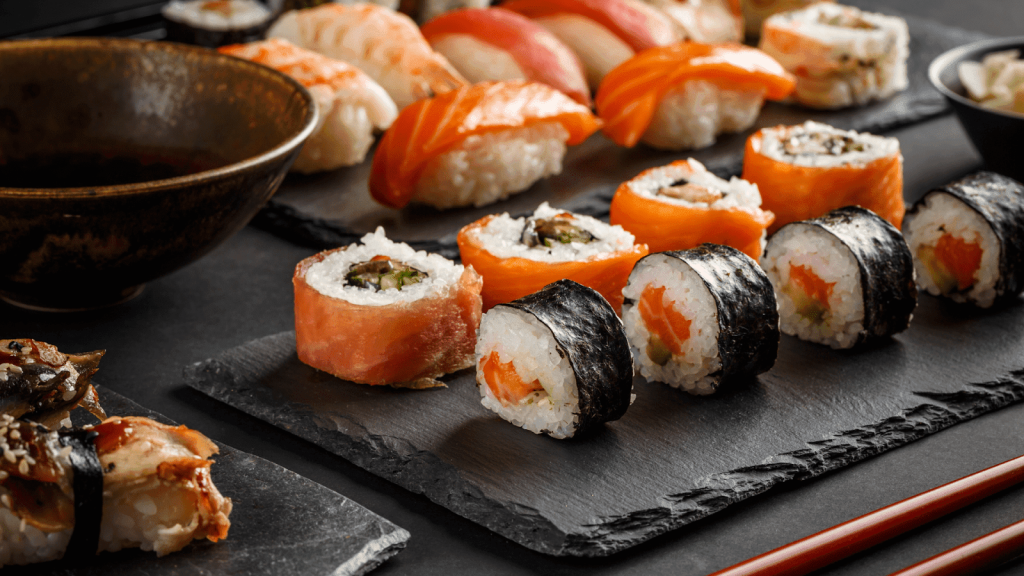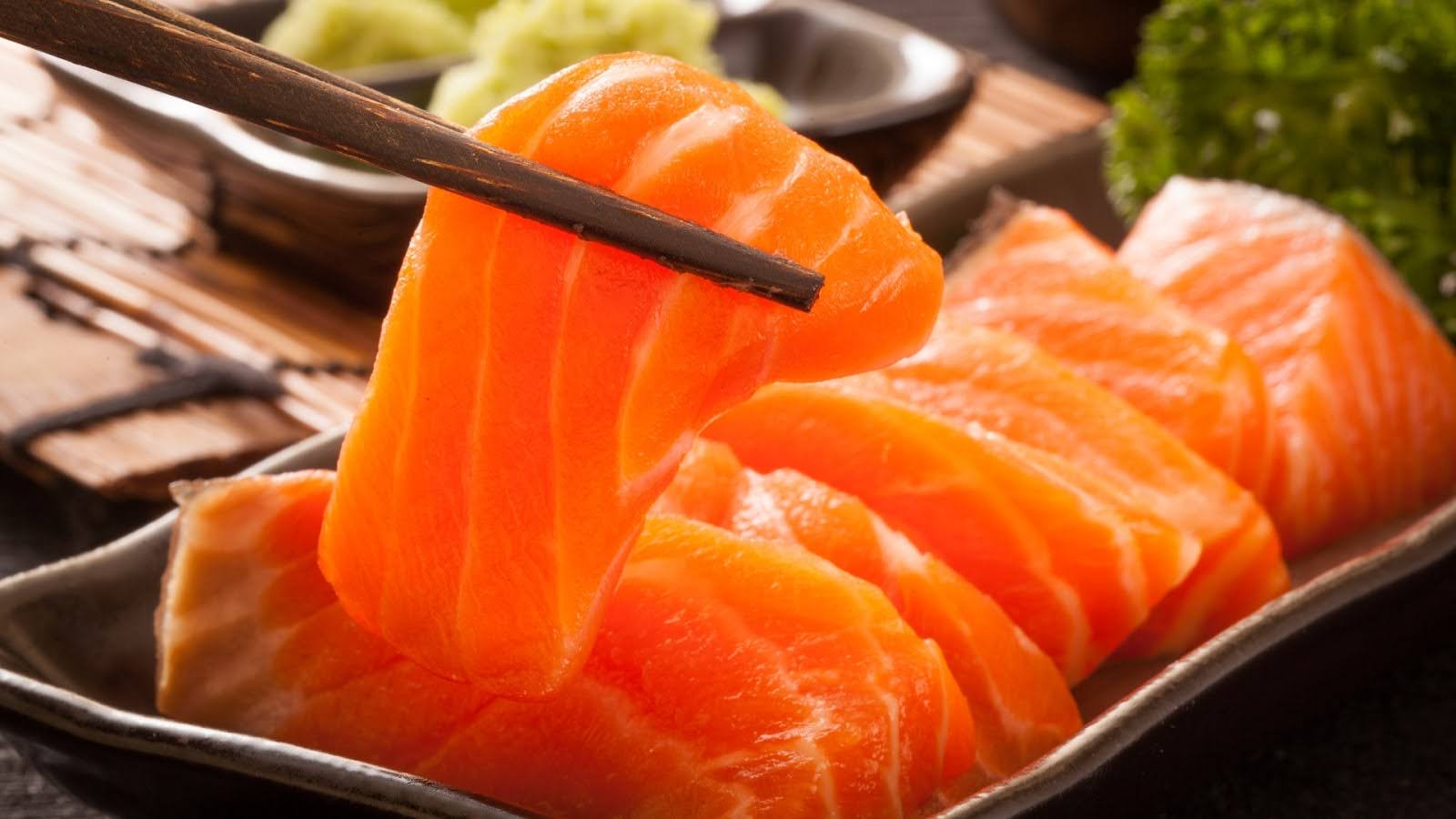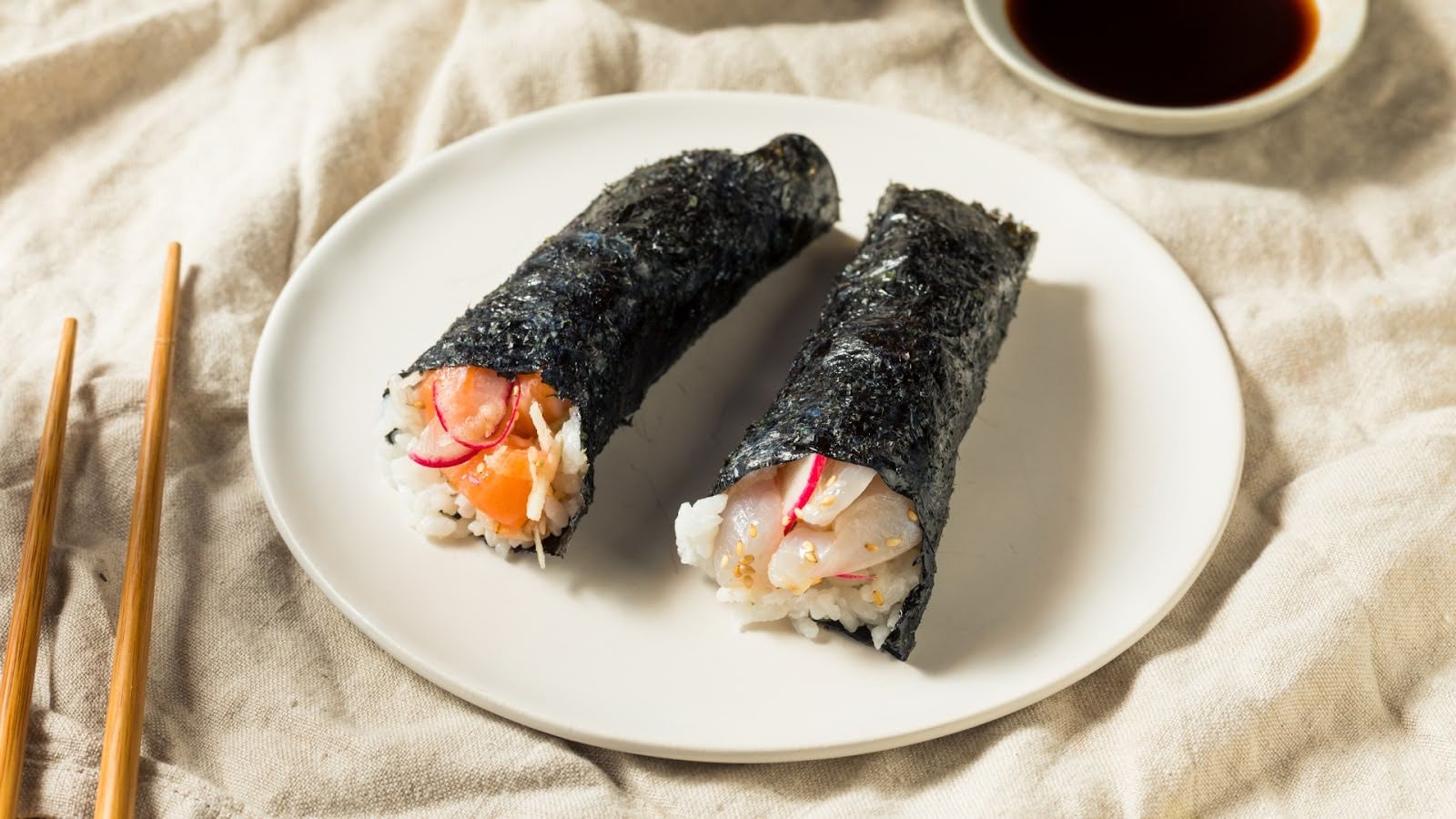
When selecting the top five sushi restaurants for our “Best Sushi NYC” article, we conducted a thorough review to ensure only the finest establishments were featured. Each restaurant was carefully evaluated based on quality, ambiance, customer feedback, and overall dining experience. Here’s how we chose the best sushi spots in New York City:
By combining these factors, we’ve curated a list representing the best of NYC’s sushi scene, guaranteeing an unforgettable dining experience no matter which spot you choose.

Are you craving sushi that melts in your mouth, crafted with the freshest ingredients, and bursting with flavor? Finding exceptional sushi in a city as dynamic as New York can feel like searching for a diamond in a sea of rocks. With so many options, how do you separate the hidden gems from the rest? Dining out in NYC is an experience, and sushi—an art form steeped in tradition and innovation—is no exception. From traditional Japanese techniques to modern fusion creations, the city offers endless possibilities that cater to every palate.
In this piece, we’ve curated a list of the top five sushi restaurants in NYC, each offering a unique dining experience. Whether you’re a sushi purist or an adventurous foodie, these spots promise to deliver unforgettable meals in the heart of the city.
Located in the heart of New York City, Soho Sushi is a haven for sushi enthusiasts seeking fresh, high-quality Japanese cuisine. Known for its vibrant menu, the restaurant offers a variety of sushi rolls, sashimi, and classic Japanese dishes. Whether you’re indulging in their signature rolls or exploring their creative chef’s specials, Soho Sushi consistently delivers on taste and presentation. The cozy ambiance and attentive service make it a great spot for a casual lunch or a relaxed evening meal. With its commitment to using the freshest ingredients, Soho Sushi stands out as a top contender in NYC’s competitive sushi scene.
Sushi Fussion Manhattan takes kosher dining to a whole new level, blending traditional Japanese techniques with modern flavors. This upscale spot is perfect for those looking to enjoy sushi while adhering to dietary restrictions without compromising taste or quality. The restaurant is a favorite for locals and visitors, and its menu features everything from classic nigiri to unique specialty rolls. Conveniently located in Midtown Manhattan, Sushi Fussion provides a warm and inviting atmosphere, making it ideal for quick lunches and dinner gatherings. Their dedication to freshness and innovation makes them a standout in the kosher dining scene.
Nestled on the Upper East Side, Sushi Ren is the perfect spot for those craving a traditional sushi experience. Renowned for its expertly crafted sashimi and simple yet flavorful rolls, this restaurant is a tribute to authentic Japanese cuisine. The minimalist décor and serene ambiance transport diners to a classic sushi bar in Japan, offering a peaceful escape from the city’s hustle and bustle. Regulars praise Sushi Ren not just for the quality of its food but also for its friendly and knowledgeable staff. It’s an excellent choice for sushi purists who appreciate fresh, uncomplicated flavors.
Situated in the bustling Midtown district, Tenzan 52 Midtown is a favorite among busy professionals and sushi lovers. Known for its fresh ingredients and robust menu, this restaurant offers a wide selection of sushi rolls, sashimi, and other Japanese delicacies. Tenzan’s ability to balance quality with efficiency makes it a go-to spot for quick lunches, casual dinners, or even delivery on a busy night. The cozy yet modern interior provides a welcoming space, whether you’re dining solo or with friends. With its central location and commitment to consistency, Tenzan 52 Midtown is a must-visit for sushi enthusiasts in the area.
Located in the trendy Hudson Yards area, Suram offers a unique fusion of sushi and ramen, making it a versatile choice for diners with varied tastes. The menu boasts a mix of traditional sushi options, innovative rolls, and hearty ramen bowls, catering to every craving. Suram’s sleek, modern décor and lively atmosphere make it a popular spot for casual dining or special occasions. Additionally, the restaurant offers private event spaces, perfect for group gatherings. Whether you’re in the mood for expertly crafted sashimi or a comforting bowl of ramen, Suram delivers a satisfying experience with style and flavor.
New York City’s sushi scene offers an incredible variety catering to traditionalists and adventurous eaters. Here are some popular types of sushi you’ll encounter:
Finding the perfect sushi spot in NYC can feel overwhelming with so many options, but a few simple tips can help you make the right choice:
Sushi is more than just a meal; it’s an experience steeped in tradition. Learning how to approach it properly can deepen your appreciation for the food and the culture behind it. Below are some tips to help you enjoy sushi like a seasoned enthusiast:
When dining on sushi, it’s best to begin with lighter-flavored fish such as white fish, snapper, or fluke. These milder options prepare your palate for the richer flavors of fatty tuna, salmon, or eel that come later. This progression allows you to appreciate the delicate nuances of each type of fish as you move through the meal.
Soy sauce should be used carefully to avoid overpowering the sushi’s natural flavors. Always dip the fish side of the sushi, not the rice, into the soy sauce. This technique ensures you enjoy the chef’s intended balance of rice, fish, and seasoning without making it overly salty.
The chef often adds wasabi, so adding extra can mask the flavor of the fish. Ginger, on the other hand, is a palate cleanser and should be eaten between different pieces of sushi. Using them as intended enriches your tasting experience and preserves the distinct flavors of the dishes.
If you’re at a sushi bar or enjoying an omakase experience, take a moment to observe the chef’s craftsmanship. Sushi chefs often spend years perfecting their skills, and each piece they prepare is carefully thought out. By following their instructions on how to eat certain pieces, you’ll enjoy the dish the way it was meant to be experienced.
Sushi pieces are designed to be eaten in one bite so you can enjoy the full balance of flavors. If a piece is too large, take two bites, but avoid deconstructing the sushi. Breaking apart the sushi can disrupt the harmony of ingredients that the chef worked to create.
Traditional accompaniments like green tea or sake are excellent choices for cleansing the palate and complementing the flavors of sushi. A crisp white wine or a light Japanese beer can also pair well for those who prefer something different. Choose a drink that complements the subtle flavors of the fish without overpowering them.
Sushi dining has its etiquette that can make the experience more enjoyable and respectful. Whether you’re visiting a high-end omakase counter or a casual sushi bar, understanding the proper customs helps you appreciate the culture behind the food.
Sushi chefs dedicate years to mastering their art, so showing appreciation for their work is essential. Avoid making special requests unless necessary, as the chef’s creations are carefully crafted to highlight the ingredients. A simple “thank you,” or a nod of acknowledgment goes a long way in showing your respect.
Rubbing wooden chopsticks together is often considered rude, as it implies that the restaurant provides cheap utensils. If you need to clean off splinters, do so discreetly without drawing attention. Instead, focus on using the chopsticks carefully and properly to enjoy your sushi.
Using your hands when eating nigiri or hand rolls is perfectly acceptable. Traditionally, sushi was eaten this way to maintain the texture and structure of the rice. However, if you prefer chopsticks, that is also fine, as long as you handle the sushi delicately.
When dipping sushi in soy sauce, avoid soaking it, as this can overpower the flavors. A light dip is enough to add a touch of seasoning without masking the taste of the fish. Also, never mix wasabi directly into the soy sauce unless the chef explicitly permits it.
Sushi is best enjoyed as soon as it’s prepared to experience its intended texture and temperature. Waiting too long can cause the rice to dry out or the fish to lose its freshness. If you’re dining at a sushi counter, eat each piece promptly after the chef serves it.
If you’re unsure how to eat a certain type of sushi or what’s being served, politely ask the chef or staff. They’ll often be happy to explain the dish or suggest the best way to enjoy it. This curiosity is seen as a genuine interest in the culture and cuisine.
Sushi is not only a delicious dining option but also offers a variety of health benefits. With its fresh ingredients and nutrient-rich components, sushi can be a nutritious choice for many people.
Many types of sushi, particularly those made with salmon, tuna, or mackerel, are excellent sources of omega-3 fatty acids. These healthy fats support heart health, reduce inflammation, and improve brain function. Including omega-3-rich sushi in your diet can be a simple way to boost your intake of these beneficial nutrients.
Sushi is a great source of lean protein, which is essential for muscle repair, energy production, and overall body function. Fish like tuna and yellowtail are packed with protein and low in saturated fat, making sushi a wholesome option for maintaining a balanced diet.
Sushi, especially sashimi or nigiri, can be a low-calorie meal. These options focus on fish and rice without heavy sauces or fried ingredients. If you’re watching your calorie intake, choosing simple rolls and avoiding tempura or mayonnaise-based additions can keep your meal light and healthy.
Sushi ingredients like seaweed, fish, and vegetables contribute essential vitamins and minerals to your diet. Seaweed, for instance, is rich in iodine, calcium, and iron, while fish provides vitamins like B12 and D. Adding vegetarian sushi with fresh veggies further increases the intake of antioxidants and fiber.
The rice used in sushi is typically seasoned with rice vinegar, which has antimicrobial properties and may support digestion. Additionally, fermented sides, like pickled ginger and miso soup, often served with sushi, can promote gut health by introducing beneficial probiotics into your system.

The cost of sushi in NYC varies depending on the type of restaurant. Casual spots often charge $10–$20 for rolls, while high-end omakase experiences can range from $100 to $400 per person. NYC offers sushi options for every budget, so you can enjoy great sushi without spending a fortune.
NYC is home to a diverse culinary scene with access to fresh, high-quality seafood flown in daily from global markets. The city features chefs trained in traditional Japanese techniques and innovative spots blending sushi with modern flavors. Its variety ensures there’s something for every taste and preference.
Yes, NYC offers excellent vegetarian sushi options at many restaurants. There’s no shortage of flavorful choices, from avocado rolls to creative vegetable-based maki and hand rolls. Some high-end sushi spots offer plant-based omakase menus for a refined dining experience.
An omakase experience typically lasts between 1.5 to 2.5 hours. The pace depends on the restaurant and the chef’s style, as each piece is prepared and served individually. This allows guests to savor the meal and enjoy the chef’s craftsmanship at a relaxed pace.
Sushi is a dish combining vinegared rice with fish or other toppings, while sashimi is just sliced raw fish served without rice. Maki, on the other hand, consists of rolls wrapped in seaweed and sliced into bite-sized pieces, often featuring multiple ingredients.
Many sushi restaurants in NYC accommodate dietary restrictions, including gluten-free and vegan options. Gluten-free soy sauce is often available; chefs can customize rolls to exclude specific allergens. When you arrive, it’s always a good idea to inform the staff of your preferences.
Sushi in NYC can be enjoyed year-round, but some fish are seasonal and at their peak during specific times of the year. For instance, fatty tuna (toro) is often better in winter, while uni (sea urchin) is at its best in late fall and early winter. Visiting a restaurant known for seasonal ingredients is a great way to enjoy the freshest sushi.
While takeout sushi can be delicious, dining in often offers a better experience due to the freshness and attention to detail in the presentation. Sushi is best enjoyed immediately after preparation, as the rice texture and fish quality can change over time. However, many NYC sushi spots excel at preparing takeout that travels well.
Yes, many sushi restaurants in NYC offer kid-friendly options such as simple rolls like cucumber or avocado maki. Some places even have cooked sushi options, like shrimp tempura or teriyaki chicken rolls, which are more approachable for children. Casual sushi spots are typically the best choice for families with kids.
For highly sought-after sushi restaurants, especially omakase venues, booking at least two weeks in advance is recommended. Depending on demand, some exclusive spots may require a month or more of planning. However, many casual sushi spots in NYC accept walk-ins or have shorter wait times.
382 NE 191st ST
PMB # 884858
Miami, Florida
Contact us: support@getsauce.com